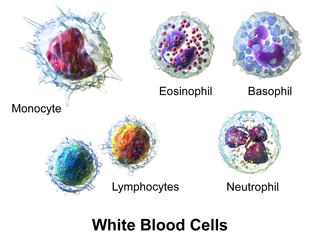Immunisation App launched by Academy of Science
In a media release on the 12th of Dec 2013,” the Australian Academy of Science and the Australian Medical Association today combined medicine and scientific research to launch the Academy’s new app, Science Q&A, an authoritative evidence-based resource to empower Australians to make informed decisions about immunisation.” The app, available on Android or Apple can be downloaded free from Google play or the AppStore.
Renowned immunologist Sir Gustav Nossal said the importance of immunisation cannot be overstated.”Not only does this safeguard children from serious and potentially fatal infections, but high immunisation coverage at community level ensures that viruses and bacteria do not have enough fertile ‘soil’ on which to grow, so that risk of infection is minimised by ‘herd immunity’ ”.
Australian Academy of Science/Science Policy/Projects/Immunisation
Apparently this software is based on a previous Academy publication, The Science of Immunisation: Questions and Answers. Never heard of it. Apparently it was published a year ago. Its an awesome read created by a panel of scientific and medical experts. You need to download it, read it and save it to your hard drive. When there are so many morons pumping out anti immunisation crap, this seems to be an island of intelligence in a sea of internet ignorance, misinformation and bull dust. Get it, get it, get it. There are two pdf downloads a low resolution 1mb or an 18mb high resolution version.
Topic headings in the publication.
1. What is Immunisation?
Immunisation protects against infectious disease.
Immunisation harnesses the body’s own defence mechanisms.
How long has immunisation been around?
Is it better to get the disease then be vaccinated?
Immunisation is disease-specific.
Vaccines harness the immune system’s capacity for memory.
Can immunisation make the immune system react against the body’s own tissues?
Infant vaccines work with the newborn immune system.
Passive immunisation provides immediate protection.
2. What is in a vaccine?
Vaccines contain antigens and adjuvants.
Disease-specific vaccine ingredients are called antigens.
Several types of antigens are used in vaccines.
Some vaccines contain live organisms.
Do vaccines contain preservatives?
I’ve heard vaccines contain DNA. Should I be concerned?
Adjuvants amplify the immune system’s response.
Vaccine quality is carefully monitored.
Why are some vaccines given with caution to people with egg allergy?
3.Who benefits from vaccines?
Individuals benefit, in the short and long term.
Vaccines can protect against long-term complications of infections.
The community at large benefits.
Vaccines can control, eliminate and eradicate diseases.
Vaccination brings economic benefits.
Are reductions in infections due to better health and hygiene rather then vaccination?
4. Are vaccinations safe?
Benefits of vaccines outweigh the risks.
Most reactions from vaccination are minor.
Some adverse reactions coincide with, but are not caused by vaccination.
Does the MMR vaccine cause autism?
Do vaccines cause autoimmune diseases?
Do vaccines cause allergic reactions?
Serious side effects from vaccines are extremely rare.
Is vaccination during pregnancy safe, and if so for what diseases?
5. How are vaccines shown to be safe.
Safety testing is an integral component of vaccine development and use.
Vaccine safety is always assessed before licensing for use.
Safety assessments continue once a vaccine is licensed for use.
If vaccines are so rigorously tested, why are some withdrawn from the market after introduction in to the community?
6. What does the future hold for vaccination?
The benefits of vaccination worldwide will continue.
Existing vaccines will be used in new ways.
New technology will change vaccine delivery.
Novel vaccines.

